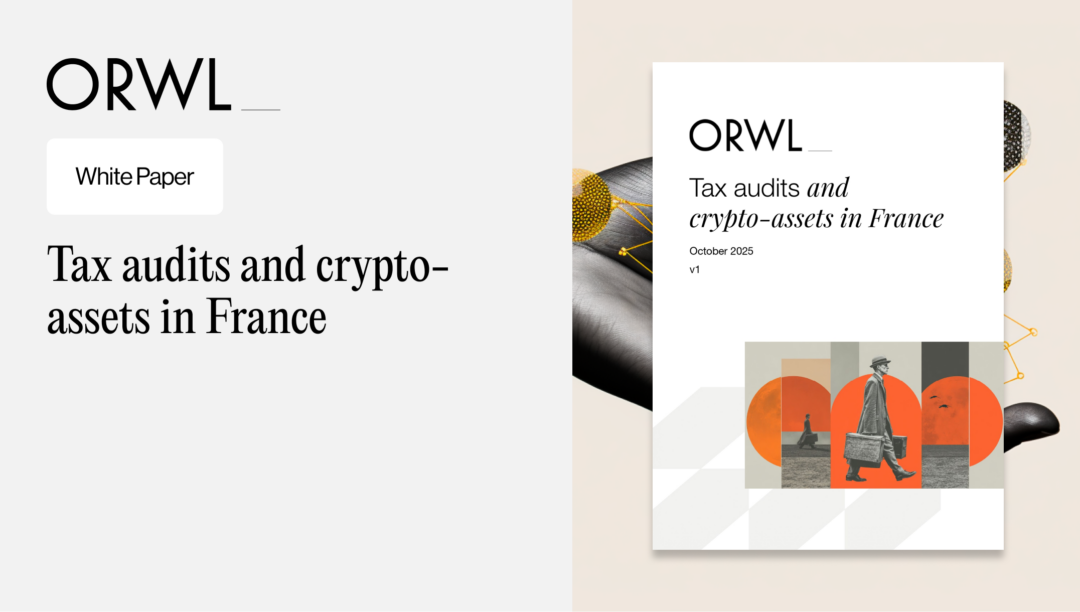
[White Paper] Tax audits and crypto-assets in France
As procedures multiply and information exchange is set to come into force, ORWL_ is publishing a white paper to help understand and comprehend tax audits relating to crypto-assets in France.
For the year 2021, the Cour des comptes noted that €400 million in capital gains on crypto-assets had been declared in France, even though the estimated amount of capital gains was €3.5 billion.
Crypto-assets have developed very rapidly in a highly uncertain regulatory and tax environment. In the early years, the instability and fragmentation of the sector, as well as the lack of clear rules and guidance from the authorities, forced investors and companies dealing in crypto-assets to operate in a relatively grey area.
That time is coming to an end.
Crypto-asset service providers are subject to demanding and harmonised regulations within the EU; the DAC8 (EU) and CARF (global) mechanisms will require platforms to automatically report their users’ transaction histories from 2026 onwards; and the tax authorities’ powers of control over crypto-assets were strengthened in 2025.
This publication aims to shed light on the conditions and challenges of tax control in relation to crypto-assets.
Excerpts

Download our White Paper
Our services in tax audits and crypto-assets
Since 2018, ORWL has been the French leader in supporting Web3 and crypto projects.
The firm stands out for its recognized experience, in-depth understanding of the sector’s challenges, and multidisciplinary approach.
The complementary nature of its teams enables the firm to advise companies and individuals on securing their Web3 projects and optimizing their tax situation with a global vision. The firm is also able to represent them in any disputes that may arise from their activities.
With our extensive experience, we regularly assist investors and projects in:
- the tax structuring of their business and the optimization of their investments;
- the regularization of their income received in cryptocurrencies;
- the defense of their interests during tax audits;
- the defense of their interests before the tax authorities and the courts.


